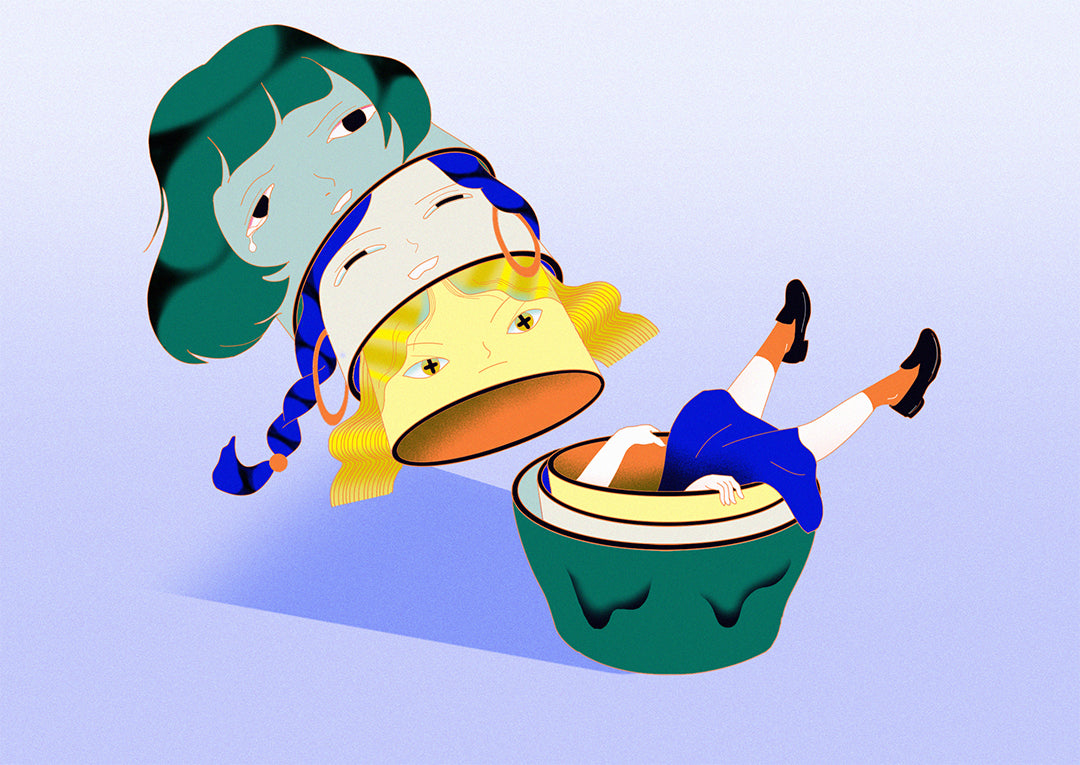
Myth Busting: Periods & Emotions
Share
One of the most insulting things that people who menstruate experience frequently is how often we’re told our menstrual cycle is the reason for our emotions. How often have you been in a situation where a conversation gets heated, and you’re asked if you’re on your period or about to be? It would be bad enough if the insinuation were simply idiotic, but it is also incredibly damaging in many ways.
To reduce or discredit the emotions of someone based on something that happens once a month is incredibly irresponsible, and that narrative has been causing trouble for centuries. How did this myth start, and why is it so harmful to those of us with a menstrual cycle? You better believe I can tell you why.
Origins of The Myth
If you’re looking for the exact origins of this myth, you’re not going to find it, but some key elements have helped perpetuate it. The bodies of those who menstruate have historically been understudied in the medical and scientific sectors. To this day, we aren’t entirely sure how certain vaginal or uterine conditions come to be or how they should be treated.
PMS seems to be the big culprit here, and old studies of hormones before your period have altered the way cis men tend to view us. Because our hormones are elevated before and during our period, our moods can sometimes be affected. Most cis-gendered men don’t understand how our hormones work and how they fluctuate and have falsely assumed that if we are upset, it must be due to this hormone fluctuation.
This is, unfortunately, unsurprising. The people who believe that PMS discredits emotional reactions tend to be the ones who do not understand how the menstrual cycle works. They also tend to be the ones who won’t admit that they were the ones who affected your emotions, not your PMS.
Some individuals have claimed for years that periods and PMS affect decision-making and reactions and that this is why those who menstruate shouldn’t be a part of important decisions or in leadership positions. What helps break down this myth is that not all menstruators have PMS. Most people don’t know that even if you have a period, you won’t always experience the symptoms of PMS. This further proves how little those who don’t menstruate understand about the cycle.
Why It Is Harmful
The obvious reason is that it is degrading to constantly have your emotions called into question even when you’re not on your period. We don’t often disclose to everyone when we’re on our periods, so for individuals to assume simply because they didn’t like how you reacted is irresponsible. While hormonal fluctuations can positively or negatively affect your mood, this doesn’t mean we don’t have a handle on our emotions.
Commenting that ‘we must be on our periods’ is an incredibly lazy way to back up your argument. If I’ve reacted negatively to something you’ve said or done negatively, it isn’t my period’s fault. It could be that what you said or did is offensive, or we had a misunderstanding, but my uterus isn’t likely the culprit.
To assume that menstruators aren’t in control of their emotions because they have a menstrual cycle isn’t just offensive; it is damaging. It perpetuates stereotypes that we lack unbiased opinions or can’t make decisions because our bodies rule over our minds. If this is true, then it can be said that cis-gendered men shouldn’t be in positions of power, as high testosterone has been linked to mood swings and emotional instability.
Stress and hormonal imbalances in anyone can cause some changes to our moods, but that does not mean we are unstable or unable to conduct ourselves in business or social affairs. Perpetuating this myth and stereotype continues to exclude menstruators from positions of power, higher pay, and essential conversations or decisions. It also continues to place menstruators in a weaker position that allows them to be looked down upon or judged simply because they have a uterus.
Everyone should have the right to express their emotions healthily and in a safe environment. This goes for menstruators and non-menstruators alike, as we have historically handled emotional wellness poorly, regardless.
